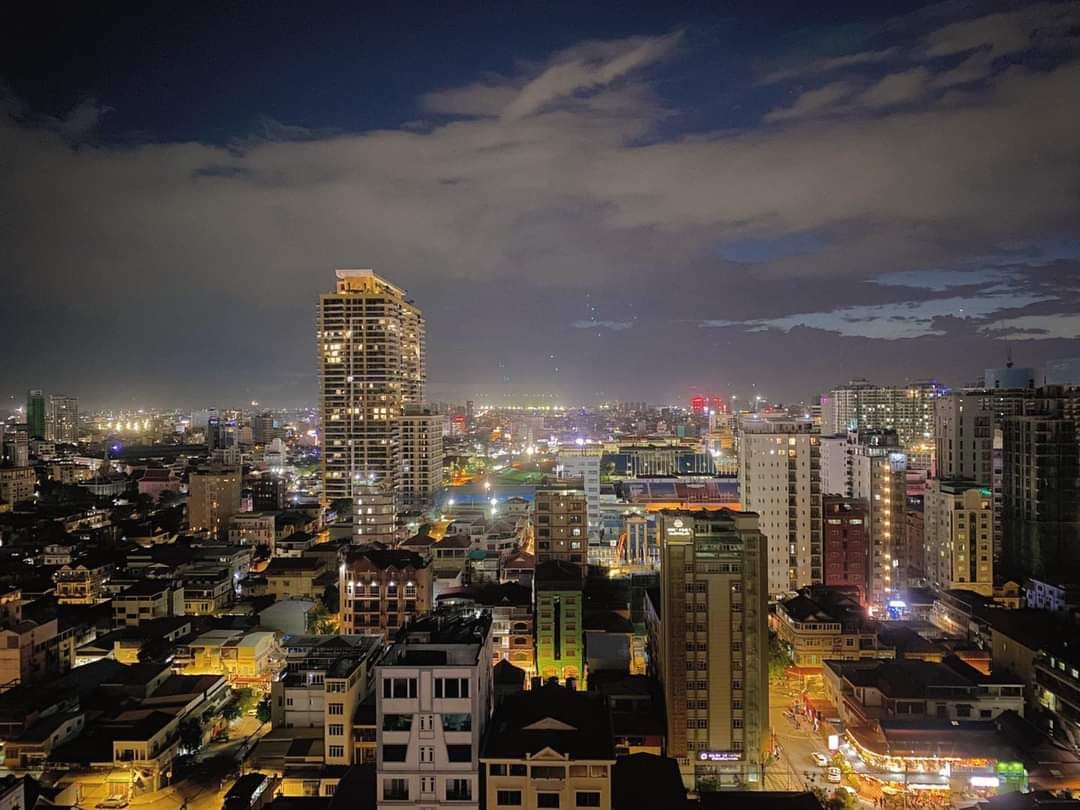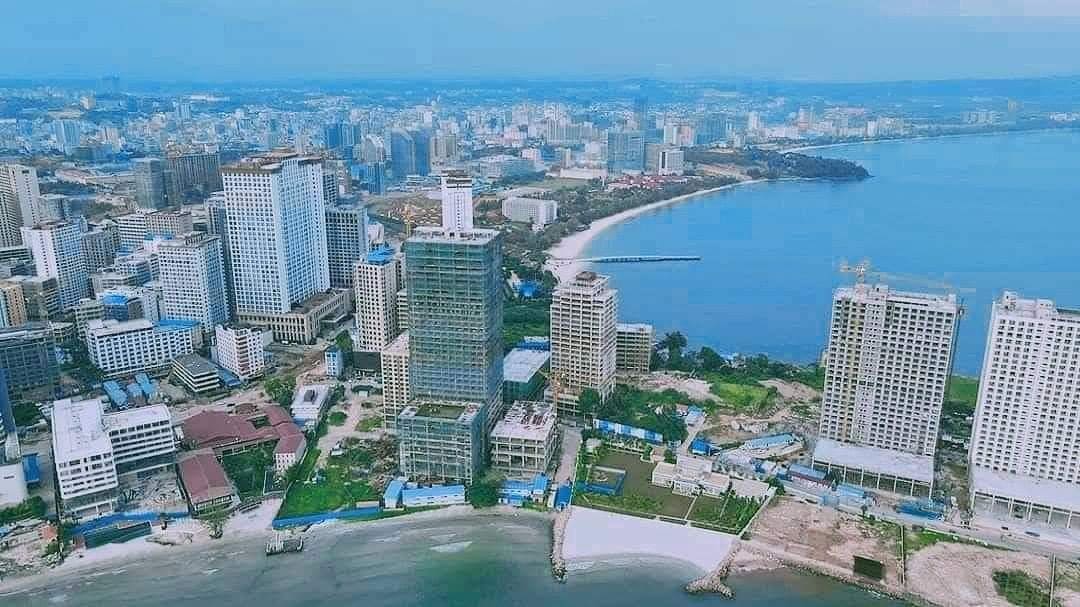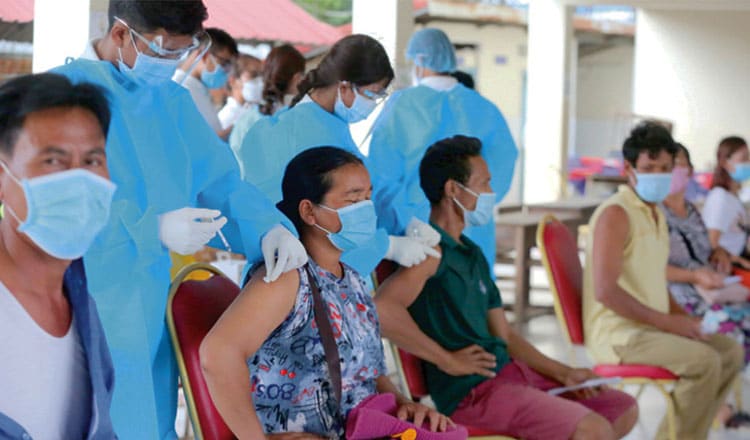A good choice: Cambodia’s use of Sinovac may turn out a blessing
Description
Cambodia’s decision to inoculate the majority of the population with the Sinovac vaccine may be the shot in the arm the Kingdom needs to battle the virus scourge.
Recent studies in Thailand have shown the vaccine’s efficacy to be as much as 99.4 %.
China’s Sinovac Biotech has also applied for an amendment of its emergency use authorisation (EUA) for its Covid-19 vaccine to be used on children aged three to 17 in Thailand.
Bangkok Post yesterday quoted Chulalongkorn University virology specialist and chief of the Centre of Excellence in Clinical Virology Dr Yong Poovorawan as saying that the Sinovac vaccine provides as much as “99.4% immunity against Covid-19 a month after the second dose”.
He was citing a study on immunity by the centre and Banphaeo General Hospital in Samut Sakhon.
Researchers studied the immunity of people before and after they received two doses of the Chinese vaccine, administered three weeks apart.
“People who received the vaccine have 99.4% immunity against the Covid-19 spike protein, while it was 92.5% for patients who had already been infected,” Dr Poovorawan said.
He said the centre was conducting a long-term study on immunity in a bid to predict the chance of Covid-19 infections.
“We already know that patients who have been cured can be infected by Covid-19 again, but the severity is likely to be less severe than the first time,” he said.
The Manila Times reported Philippine Food and Drug Administration (FDA) director general Rolando Enrique Domingo said Chinese drug firm Sinovac Biotech had applied for an amendment of its emergency use authorisation (EUA) for its Covid-19 vaccine to be used on children aged three to 17.
“The Sinovac, just this afternoon (July 6), applied for an amendment of their EUA to include children. In this case, children from three to 17 years old,” Domingo said in a meeting with President Rodrigo Duterte on Monday.
“So, this is another potential vaccine that can be used for the pediatric age group. Our vaccine experts are now taking a look at the data and of course, asking questions among proponents and getting more information. So, we are studying this within the month to see if we will be able to allow the use of Sinovac on children,” he added.
The Sinovac-CoronaVac product is an inactivated vaccine. Its easy storage requirements make it very manageable and particularly suitable for low-resource settings.
Chinese researchers conducted a randomised, double-blind, controlled phase 1/2 clinical trial in Zanhuang County, China. The vaccine was given to more than 500 healthy children and adolescents, 96% of whom developed Sars-CoV-2 antibodies.
The majority of adverse effects were either mild or moderate, researchers said and were most likely to be pain at the injection site.
“CoronaVac is well tolerated in children and adolescents aged three to 17 years and induces a strong immune response, which is very encouraging. We will further carry out large-scale, multi-ethnic population studies in order to provide valuable data for immunisation strategies for children and adolescents,” Gao Qiang, general manager of Sinovac, said.
The vaccination of children and adolescents would, experts argue, lessen the need for booster jabs and diminish transmission rates.
The virus rarely has severe effects on the young but research has shown they play a crucial role in boosting its transmission.
Earlier in June, the World Health Organization (WHO) approved CoronaVac for emergency use.
In China, the vaccine was already approved for use among three-year-olds, while the US has started vaccinating children as young as 12 using the Pfizer jabs.
In a related development, the Ministry of Health yesterday authorised the use of rapid testing for Covid-19 at home and in private companies to contribute to the prevention and control of the spread of the virus more effectively.
According to the Ministry of Health’s decision to implement the Code of Conduct for the Use of the Covid-19 Rapid Test, those who suspect they are infected with Covid-19 can use the rapid test on their own while following the ministry’s guidelines.
Mam Bun Heng, Minister of Health, yesterday also outlined operational guidelines on using Covid-19 rapid antigen tests at private health facilities, border checkpoints, business premises and individual homes.
“The use of rapid tests will make a significant contribution to preventing the transmission of the Covid-19 virus, especially the Delta strain and other new variants from abroad into the community of Cambodia,” he said.
He added that as a chairman of the inter-ministerial commission combating Covid-19, he sincerely hoped that all officers, staff and stakeholders will use the rapid test for detecting Covid-19 in accordance with these guidelines.
He also said that people who are administering the rapid test must be trained in advance on how to use it and how to handle waste safely.
He added that at premises they should set up separate sites to administer and await the results of the rapid tests.
Meanwhile, Health Ministry spokeswoman Or Vandine told Khmer Times yesterday that the Vaccination Campaign Committee for Covid-19 would complete providing vaccines to provinces by the end of next month.
Vandine added that so far, some provinces have been vaccinating their residents and the provision of vaccines to the people is in accordance with the plan of the Cambodian government to inoculate 10 million people.
“We have seen that in the beginning we started vaccinating people living in Phnom Penh first, then we also implemented to vaccinate in the provinces that surround the capital,” she said.
She added that so far, 14 provinces have been vaccinated against Covid-19. They are Kandal, Preah Sihanouk, Kampong Speu, Takeo, Pailin, Koh Kong, Svay Rieng, Tboung Khmum, Kampong Cham, Battambang, Siem Reap, Prey Veng, Kampong Chhnang and Banteay Meanchey provinces.
“And for the remaining 11 provinces, we will continue to vaccinate later and are just waiting for more vaccines to arrive this month and next,” she said.
She expects that by the beginning of August, when vaccines ordered from China arrive, the government will make plans to roll out inoculations for people in other provinces who have not yet been vaccinated.
“We will select the priority districts and areas for vaccination first, and if we have more vaccines, we will vaccinate in full because we have enough medical staff to implement this vaccination plan,” Vandine said.
“We will complete the government’s planned vaccination for 10 million people by October and the remaining population could be inoculated by early November,” she added.
Meanwhile, the Ministry of Health yesterday reported 954 new cases of Covid-19, bringing the total number in the Kingdom to 58,057. Of the new cases, 136 are imported and the rest are linked to the February 20 Community Event.
The ministry also announced that 27 more people had died from Covid-19, bringing the total number of fatalities to 825.
It recorded 1,046 new recoveries, bringing the total number in the Kingdom to 50,020.











